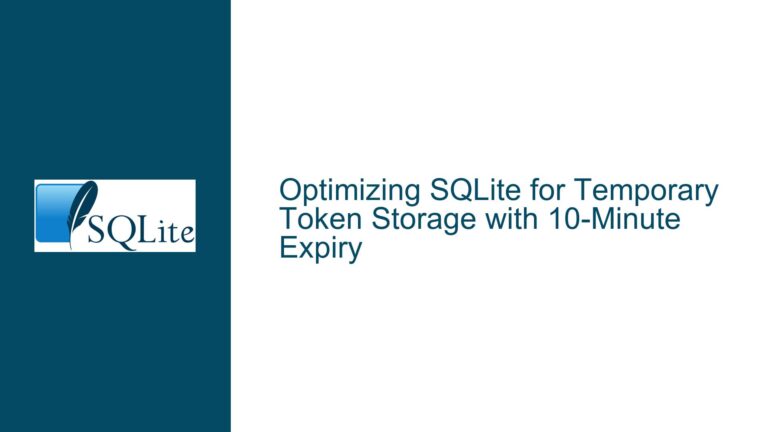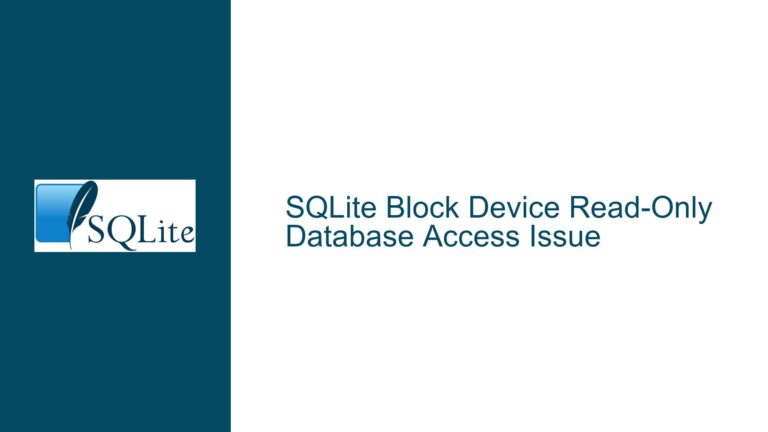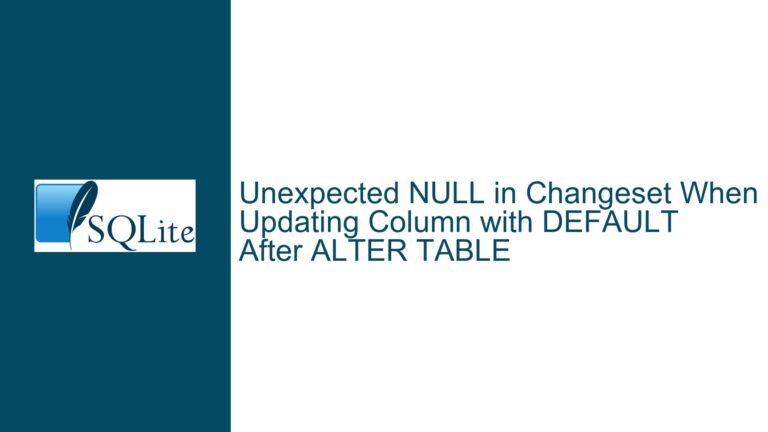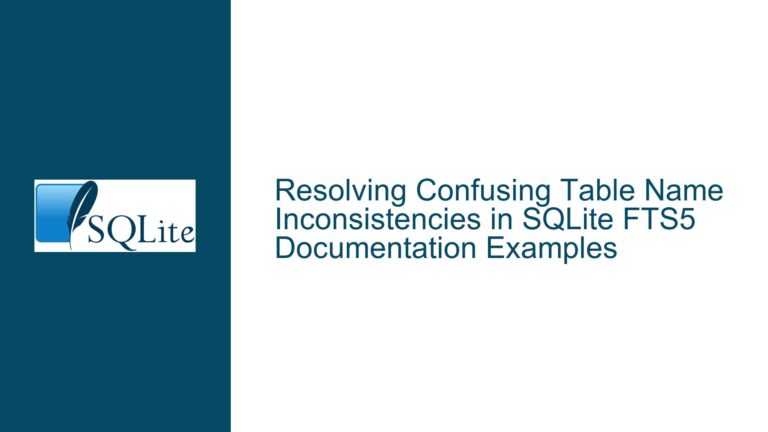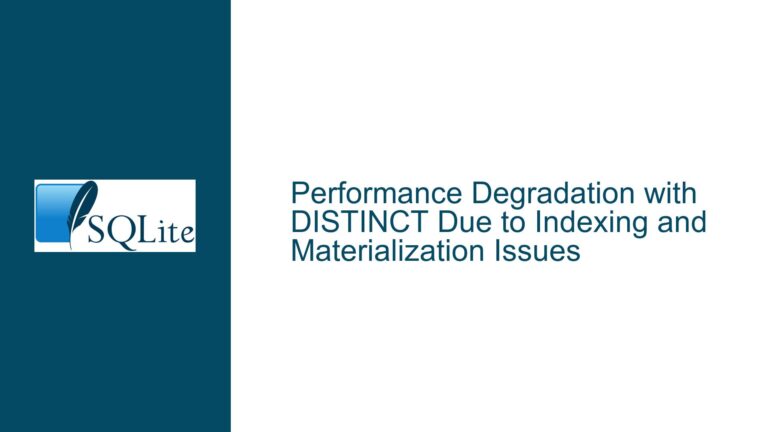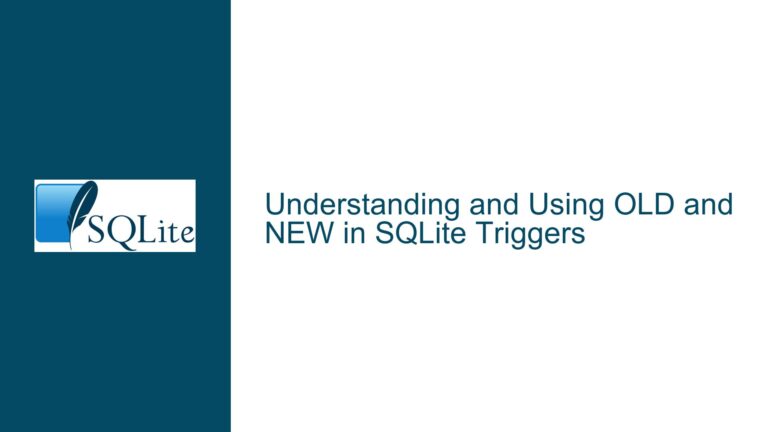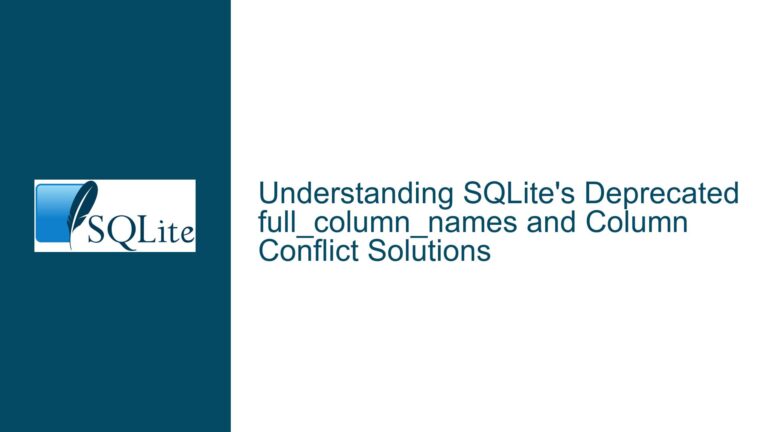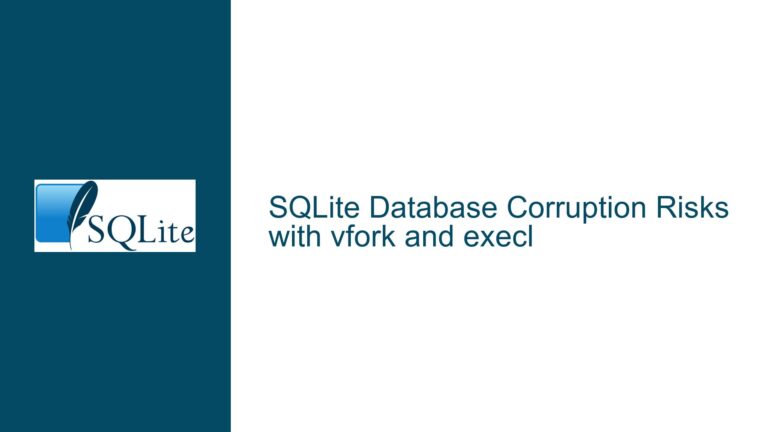Optimizing SQLite for Temporary Token Storage with 10-Minute Expiry
Storing and Managing Tokens with a 10-Minute Expiry Window When dealing with temporary data such as tokens that are valid for only 10 minutes, SQLite can be an excellent choice due to its lightweight nature and ease of use. However, managing such transient data efficiently requires careful consideration of schema design, query optimization, and database…
